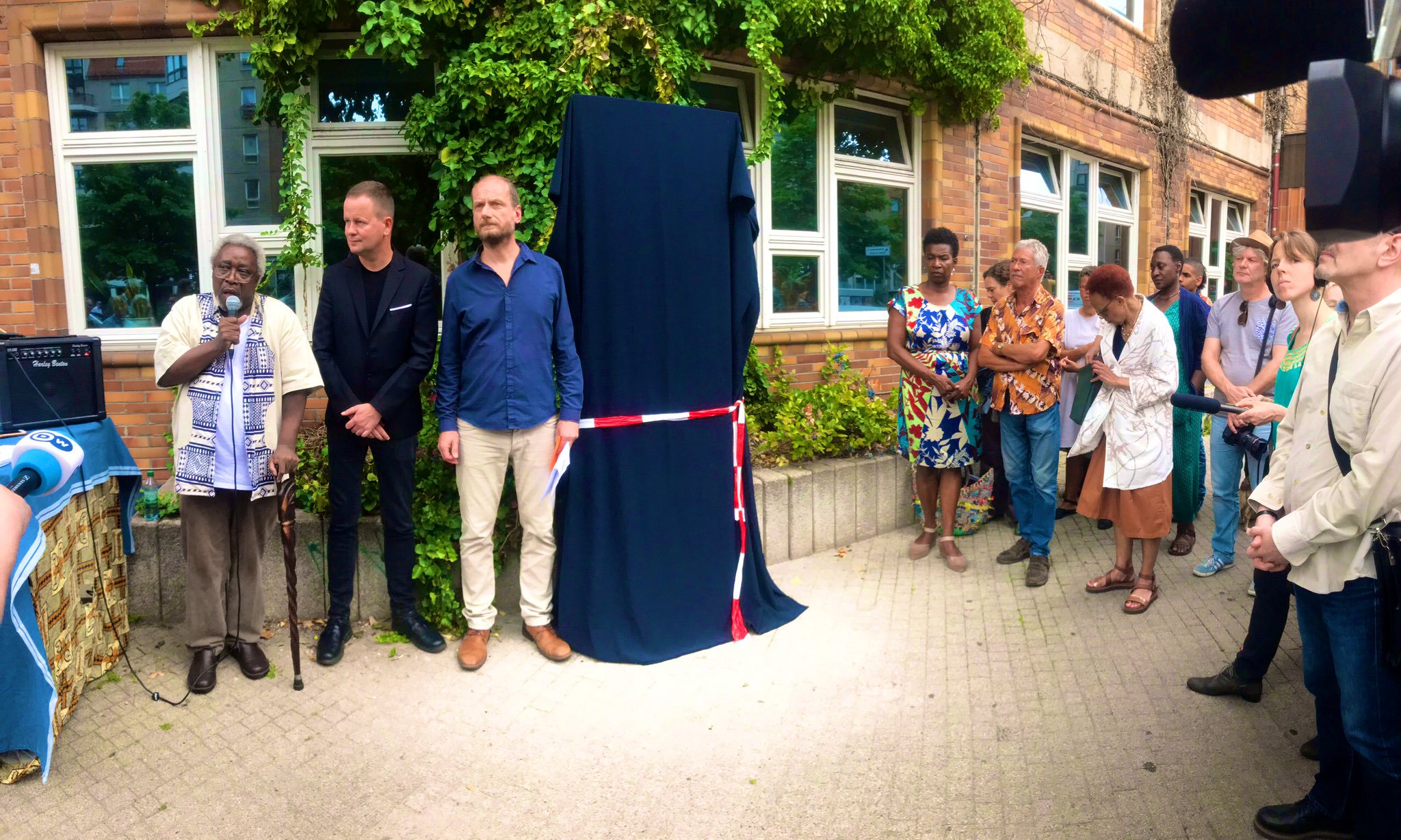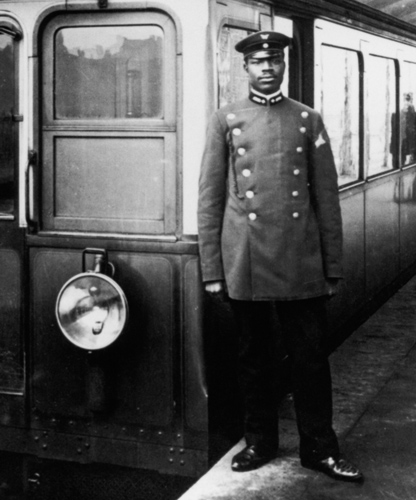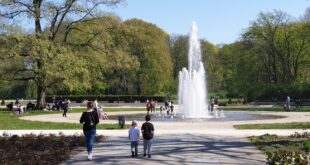A two-meter-high tablet reminding of German colonial history has been unveiled in Berlin on Monday. The memorial plaque, situated in the Wilhelmstraße in the Central District of the city, commemorates the “Dibobe-Petition”.
A petition, submitted by Cameroon-born Martin Quane a Dibobe to the Imperial Ministry of the Colonies in June 1919, which is considered one of the most important documents of the collective resistance of the African diaspora against German colonialism in Africa, was unveiled in Berlin on Monday.
Speaking at the ceremony, Berlin’s Senator for Culture, Klaus Lederer, described the Dibobe Petition as an “important part of German history”.
With the “Dibobe Petition”, a total of eighteen men from today’s Cameroon and Tanzania protested against racism and demanded independence, equal rights and legal certainty for the people in the German colonies in Africa.
The building at the Wilhelmstraße 62, on whose front the plaque is erected, was the seat of the then Imperial Ministry of the Colonies. It was in the building that Dibobe handed over the petition with the request that it should be forwarded to the National Assembly in Weimar 100 years ago.

The petition “was directed against colonial living conditions and thus against the system of colonialism, parallel to the armed resistance against the German conquest in many parts of the African continent,” emphasized Senator Lederer at the unveiling of the plaque.
“Many who took part in such petitions in the territories occupied by Germany on the African continent had been arrested, imprisoned or banished.”
READ ALSO Photo exhibition on German colonialism in Cameroon holding in Berlin
Lederer pointed out that the “Dibobe Petition” is today in the Federal Archives as “an important part of German history”.
The information board on the Dibobe Plaque was initiated and implemented by Paulette Reed-Anderson, Berlin Postcolonial and the designer Helga Lieser. It was financed by the state of Berlin on the recommendation of the Historical Advisory Council.
The factions of the SPD, Greens and Left in the Berlin government had earlier in the year called for a central memorial for the victims of colonialism in the capital city. So far, individual memorial plaques in different parts of the city remind of this part of German history.
Femi Awoniyi
About Martin Dibobe
Martin Dibobe, who was born on 31 October 1876 in Bonapriso, Cameroon, migrated to Berlin at the age of 20 to appear at the Berlin Trade Fair of 1896 as a representative of Cameroon. His assignment was to portray “African‘s everyday life” in Treptower Park.

For six months, Dibobe and many other Africans, all from the then German colonies, were presented as “exhibits”. After the end of the exhibition he stayed on in Berlin and started a locksmith apprenticeship at Conrad Schultz in Strausberg.
In early 1900, Dibobe became engaged to the daughter of his landlord, Helene Noster, and married her after some difficulties with the German colonial authorities in 1902.
In 1902 Dibobe took up a job at the Berlin Hochbahn as a train dispatcher, but soon worked his way up to the position of a platoon leader 1st class. He quickly became a local celebrity in Berlin but he kept in touch with his native Cameroon. After the First World War, Dibobe campaigned for the independence of Germany’s African colonies.
 THE AFRICAN COURIER. Reporting Africa and its Diaspora! The African Courier is an international magazine published in Germany to report on Africa and the Diaspora African experience. The first issue of the bimonthly magazine appeared on the newsstands on 15 February 1998. The African Courier is a communication forum for European-African political, economic and cultural exchanges, and a voice for Africa in Europe.
THE AFRICAN COURIER. Reporting Africa and its Diaspora! The African Courier is an international magazine published in Germany to report on Africa and the Diaspora African experience. The first issue of the bimonthly magazine appeared on the newsstands on 15 February 1998. The African Courier is a communication forum for European-African political, economic and cultural exchanges, and a voice for Africa in Europe.


































